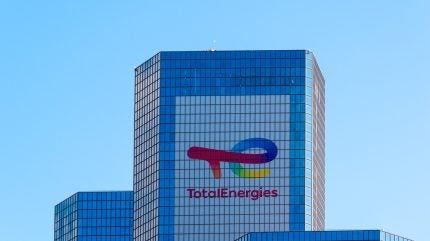
Franco-Dutch airline Air France-KLM has signed a deal with French energy supplier TotalEnergies for the supply of 1.5 million tons of “sustainable aviation fuel” (SAF) over 10 years to 2035.
Despite the well-known doubts over the efficacy of SAF as a fuel to reduce the climate impact of the aviation sector, major airlines have bet on the introduction of SAF mixes into their fuel supplies.
Air France-KLM claimed to be one of the “leading” users of SAF, using what it described as 16% of the globally produced sustainable fuel in 2023. The agreement with TotalEnergies (formerly known as Total) is a formalisation of a 2022 Memorandum of Understanding between the companies to provide 800,000 tons of the fuel.
“SAF contributes both to the energy transition of our customers in the aviation sector and to the industrial transition of our refineries. It therefore represents a real ‘win-win’ for the future of industry and aviation”, said Patrick Pouyanné, CEO of TotalEnergies.
“For the past 10 years, we have been pioneers in the field, investing in biorefineries and SAF production facilities in France as well as developing coprocessing technologies in our refineries. Building on these industrial successes, we intend to continue this momentum in Europe and worldwide,” he added.
The airline group said it was a “step” in the right direction.
How well do you really know your competitors?
Access the most comprehensive Company Profiles on the market, powered by GlobalData. Save hours of research. Gain competitive edge.

Thank you!
Your download email will arrive shortly
Not ready to buy yet? Download a free sample
We are confident about the unique quality of our Company Profiles. However, we want you to make the most beneficial decision for your business, so we offer a free sample that you can download by submitting the below form
By GlobalData“Securing the volumes of more sustainable aviation fuel needed to decarbonize our activity is a major challenge. This agreement with TotalEnergies is a further step in this direction, and a testament to our long-standing support for the development of SAF production in France and Europe. A solid SAF sector capable of meeting our industry’s needs is a key factor in Europe’s sovereignty and energy independence,” said Benjamin Smith, CEO of Air France-KLM Group.
The fuel in question will be produced in France and across Europe at “biorefineries” and delivered to French, Dutch and other European airports for the airline company’s two brands.
Where’s it coming from?
One of the key issues with SAF is its unavailability. While some say waste cooking oil can be leveraged to supply the aviation sector, not only do others say there is simply not enough of the base material, airlines and producers are in competition for the oil from other sections of the wider transport industry.
The French petroleum firm said it would solve the lack of SAF by developing “biorefineries” to produce the fuel mix for Air France-KLM.
TotalEnergies highlighted three French sites where it intends to focus SAF production, and where it said it had invested millions of euros.
Grandpuits: TotalEnergies is transforming the site into a zero-oil platform with an investment of 400 million euros. Mainly focused on the production of SAF from the circular economy, Grandpuits will be able to produce 210,000 tons of SAF by 2025, and an additional 75,000 tons by 2027.
Normandy: TotalEnergies has started producing SAF at its Gonfreville refinery. The company is planning to increase production to 160,000 tons of SAF per year by 2025.
La Mède: TotalEnergies has invested 340 million euros to transform its refinery into a biorefinery. In 2024, TotalEnergies has invested an additional 70 million euros to process up to 100% waste from the circular economy and produce SAF by 2025. Since 2021, biodiesel produced at La Mède has been used to produce SAF at TotalEnergies’ Oudalle plant near Le Havre.



